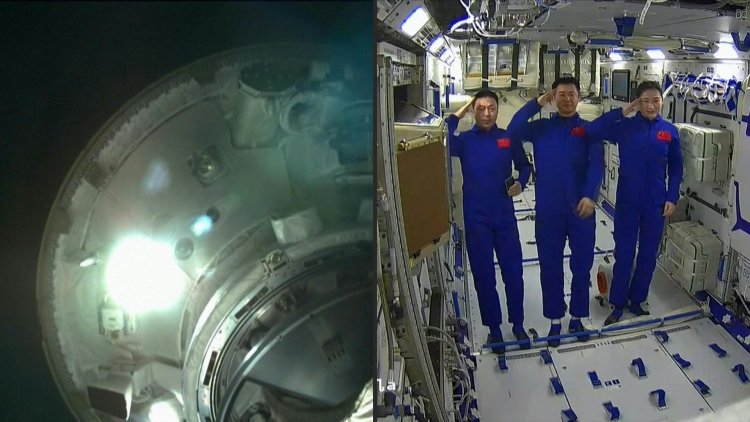Chinese astronauts set up new lab on space station

Astronauts entered the new lab module of China's space station for the first time Monday, in a major step towards completing the orbital outpost by the end of the year.
The station is one of the crown jewels of Beijing's ambitious space programme, which has landed robotic rovers on Mars and the Moon, and made China only the third nation to put humans in orbit.
Once completed, Tiangong -- or "heavenly palace" -- will be constantly crewed by rotating teams of three astronauts, who will conduct scientific experiments and help test new technologies.
Wentian, the second of Tiangong's three main sections, docked with the station's core module Tianhe on Monday after successfully launching from southern China a day earlier, state media reported.
The module will have living space for three additional astronauts, housing up to six people during crew transitions, state media said.
The third and final module, another lab named Mengtian, is scheduled for launch in October.
The telescope will be positioned in the same orbit as Tiangong, allowing the station to dock with it for refuelling and servicing when needed.
China has poured billions of dollars into space flight and exploration.
The ISS, a collaboration between the United States, Russia, Canada, Europe and Japan -- is due to be retired after 2024, although NASA has said it could potentially remain functional beyond 2028.















